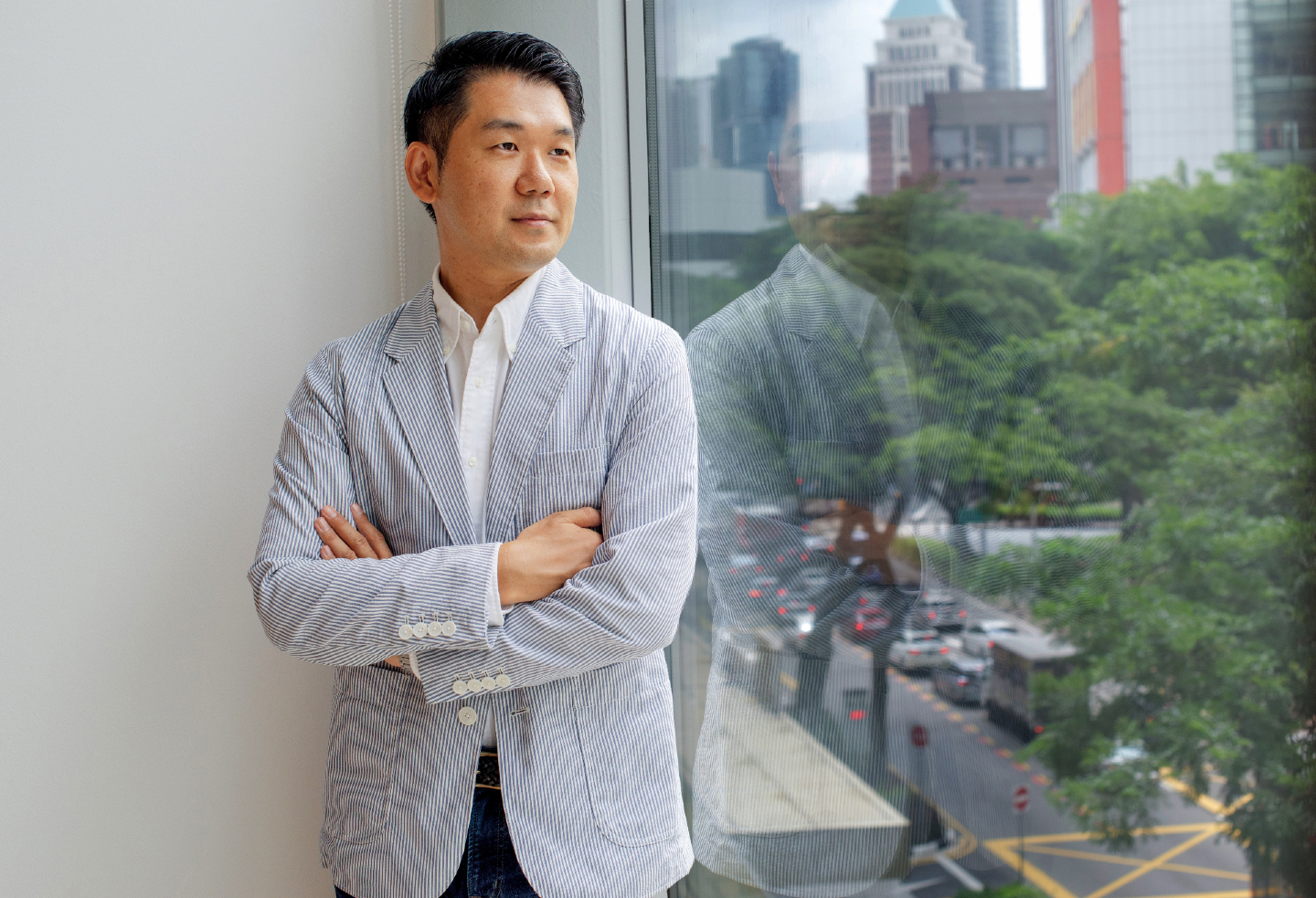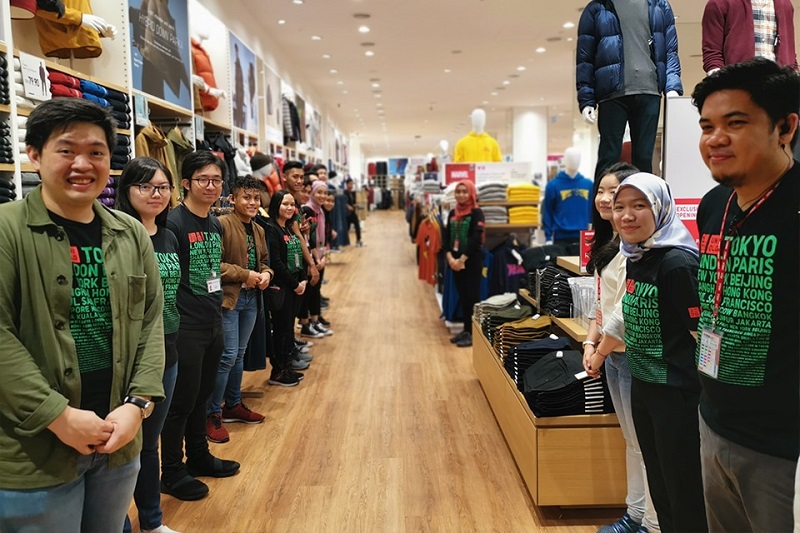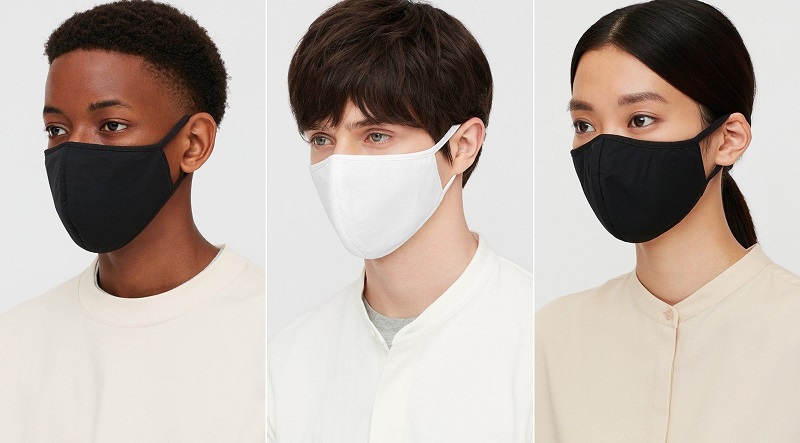
Although appointed CEO just last year, Yuki Yamada has been a part of the business for about 19 years (All photos: Uniqlo)
Scheduled store visits are a weekly commitment for chief executive-level employees at Uniqlo, but they are also a favourite part of Yuki Yamada’s job. The CEO of Uniqlo Malaysia and Singapore explains: “A visit to the sales floor also allows me to understand many things that I cannot see from my PC or at my desk. If I see any problem on-site, it allows me to address it immediately; and if it cannot be solved there and then, I can bring it back to headquarters and manage it promptly.”
He recalls that when he was the store manager of the New York branch, the local president and group chief executive would visit and give him direct feedback that was both useful and encouraging.
Uniqlo’s customer-centric approach may not be an unusual one, but its methods have proved to be very successful. Since the launch of its first store in 1984 in Yamaguchi, Japan, Uniqlo — a portmanteau word combining “unique” and “clothing” — has grown into a globally recognised brand with over 1,000 stores worldwide.
“Our company thinks and acts from the customer’s point of view. It’s easy to say it, but I think it’s difficult to put into practice as a practical decision-making and action standard for the entire company. If we are uncertain about a decision, we would refer to our customers’ voice and plan out our actions for manufacturing, sales floors and store operations,” says Yamada.
community_isse_hero.jpg

Although appointed CEO just last year, he has been a part of the business for about 19 years. “I joined the company as a Uniqlo manager candidate (a position similar to a management trainee) in a store in Tokyo, Japan, after I graduated. It was my first job and I was promoted to store manager in 2002,” he says. He then went on to become the general manager of a flagship store in the UK and a store operations director in the US.
Having worked in so many different branches, Yamada admits to facing language barriers and operational obstacles, but has taken it all in his stride. “Having been based in five different countries so far has helped me learn so much about working with people from diverse cultures and backgrounds. It has helped me to understand how every individual is unique and grasp that leadership needs to be adjustable to get teams of different individuals to work towards the same goals. More importantly, my experience with the company shows that people can build long careers with Uniqlo.”
Owned by the Fast Retailing Group — which, Yamada notes, is a leading presence in the global apparel manufacturing and retailing industry — Uniqlo follows the group strategy of focusing on people, community and the planet. “Under ‘people’, our commitments are to ensure our clothes are made and distributed by people of diverse backgrounds and under conditions where their health, safety and human rights are respected and upheld. In terms of ‘the planet’, we strive to produce and distribute clothing in a way that is harmonious with nature, without excessive burden on the environment. As for ‘community’, we seek to assist and strengthen communities by partnering with global and local stakeholders and customers in parts of the world where we operate,” he adds.
Uniqlo Malaysia, in particular, has been working with the United Nations High Commissioner for Refugees (UNHCR) since 2014 to distribute pre-loved Uniqlo clothing and hold other activities with refugee students to give them an insight into the clothing industry. There are also policies and programmes in place to ensure an inclusive workplace, such as the aim of having at least one differently-abled person working in each retail store.
To be more environmentally friendly, Uniqlo Malaysia has switched to paper bags since 2014. It also recycles plastic bottles and weaves them into material for the Pet Dry-Ex polo shirt. Meanwhile, the brand’s ultra stretch jeans are produced using eco stones and nano bubble ozone technology, which reduces their water usage by up to 99% compared to conventional jeans production.
“In Malaysia, Uniqlo has been influencing society through its operations, products and community outreach, which started as corporate social responsibility (CSR) activities but has evolved into a company-wide sustainability-driven mission that has become increasingly important each year,” says Yamada.
Uniqlo, a household name in Malaysia, will celebrate 10 years in November since the opening of its flagship store in Bukit Bintang. They have grown from its first store at Fahrenheit 88 in Kuala Lumpur to 50 retail stores nationwide, including an online store.
The brand is well known for its LifeWear — clothing designed to make our lives better. “It is simple, high-quality everyday clothing with a practical sense of beauty with ingenious details, and is thought through with life’s needs in mind, which is always evolving. LifeWear is up to date and stylish but not trend-chasing. Our aim is to be the staple pieces in our customers’ wardrobes and be seamlessly integrated into people’s everyday life,” Yamada adds.
“This growth shows that Malaysians appreciate the values of LifeWear and how it continues to deliver comfort and style to meet their daily needs, making their lives better,” says Yamada.
uniqlo_airism_face_masks.jpg

What sets the brand’s clothing apart is certainly the technology behind it. “Airism has breathability, releases heat, cools the body and wicks away moisture in summer. Dry-ex is great for athletic activities as it has the drying speed of cotton and comes with anti-microbial and anti-odour properties. Heattech’s thin underlayers hold the body’s warmth during winter while Blocktech blocks out wind and water,” he explains.
The Airism innovation in particular, which has superior breathability, is quite crucial to combat Covid-19. “As Malaysians adapt to the new normal amidst the global pandemic, we are confident that our LifeWear concept and offering will continue to be relevant to them,” says Yamada. Uniqlo has just launched its AIRism facemasks, which feature a three-layer structure that is comfortable to wear and is aimed at keeping you safe. Already, the takeup has been more than encouraging.
The new normal has necessitated adjustments in every aspect of our lives, including where we work and how we travel. Yamada says that this will mean a change in our essential clothing needs, and not just with masks. “Despite it being a challenging year for everyone, we are staying optimistic and positive about our future, especially here in Malaysia. We are continuing our expansion momentum with new store openings and greater store presence.”
Made for all? It’s certainly heading that way.
This article first appeared on Sept 28, 2020 in The Edge Malaysia.


